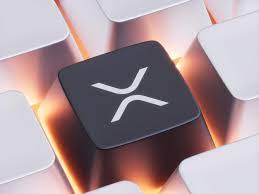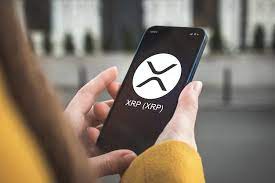Blockchain startup Ripple is optimistic that U.S. banks and financial institutions will show interest in adopting XRP for cross-border payments following a significant ruling that determined the token was not inherently a security.
Ripple plans to initiate discussions with American financial firms about leveraging its On-Demand Liquidity (ODL) product, which utilizes XRP for money transfers, in the third quarter.

This development comes after a New York judge delivered a landmark ruling in favor of Ripple, contesting the U.S. Securities and Exchange Commission’s claims against the company.
The legal battle between Ripple and the SEC has been ongoing for three years, with the agency alleging that Ripple and two of its executives conducted an illegal offering of $1.3 billion through XRP sales.
Ripple has consistently argued that XRP should not be classified as a security but rather as a commodity. The SEC’s accusations had a detrimental impact on Ripple’s business, resulting in the loss of customers and investors.
Notably, MoneyGram, a major U.S. money transfer company, terminated its partnership with Ripple earlier this year.
Following the recent ruling, Ripple’s General Counsel, Stu Alderoty, expressed confidence that American banks would reconsider using Ripple’s ODL product. Alderoty affirmed, “I think the answer to that is yes.”

Ripple also utilizes blockchain technology to facilitate messaging between banks, offering a blockchain-based alternative to the traditional Society for Worldwide Interbank Financial Telecommunication (Swift) system.
Alderoty expressed hope that the ruling would provide financial institutions with the assurance to engage in conversations about their real-world challenges in cross-border transactions, particularly the high fees associated with such transfers.
He emphasized that the current quarter is expected to generate numerous discussions and, hopefully, lead to tangible business partnerships in the United States.
While Ripple currently derives most of its business outside of the U.S., Alderoty noted that a significant number of employees are still based in the country.
XRP serves as Ripple’s cryptocurrency for facilitating international money transfers. It functions as a bridge currency between different fiat currencies, enabling swift and cost-effective transactions. XRP’s unique attributes allow for fast money movements, significantly reducing processing times.
However, it’s important to note that the recent ruling was not an absolute victory for Ripple. While the judge determined that XRP itself was not a security, certain sales of the token were deemed securities transactions.
Notably, sales totaling approximately $728.9 million to institutional buyers qualified as securities, according to the judge’s ruling, as they exhibited characteristics such as a common enterprise and an expectation of profit.
Alderoty acknowledged that Ripple’s win was not complete and stated that the company would thoroughly examine the ruling’s implications for its business.

He emphasized that the ruling’s impact on Ripple’s current operations would be minimal since the majority of its customers are located outside of the U.S.
Ripple intends to study the judge’s decision, assess its client’s needs, evaluate the market, and determine compliance with the court’s findings regarding institutional transactions.
With the groundbreaking ruling in Ripple’s favor, the company is poised to reinvigorate its engagement with U.S. banks and financial institutions, aiming to showcase the benefits of adopting XRP and Ripple’s ODL product for efficient cross-border payments.

